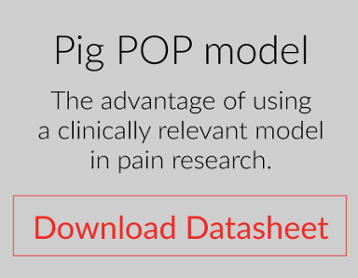MD Biosciences lab was featured with Ellegaard offering an exclusive expertise in pain studies. The article discusses our work to develop and validate models in adult pigs, specifically for chronic and acute pain.
When do we recommend to work with minipigs?
MD Biosciences pigs studies include domestic pigs and Göttingen minipigs.
The main advantage of the minipig is that it gains weight much slower than the domestic pig. This could be significant when:
- The study requires working with adult animals
- When we run models with chronic diseases ( ≥3 months)
- Tox and ADME studies are run in Göttingen minipigs, which is significant for standardization
Pig models at MD Biosciences:
Ready to learn how your research can accelerate with pig studies? Contact us today! +1 (651) 641-1770 or info-us@mdbiosciences.com










